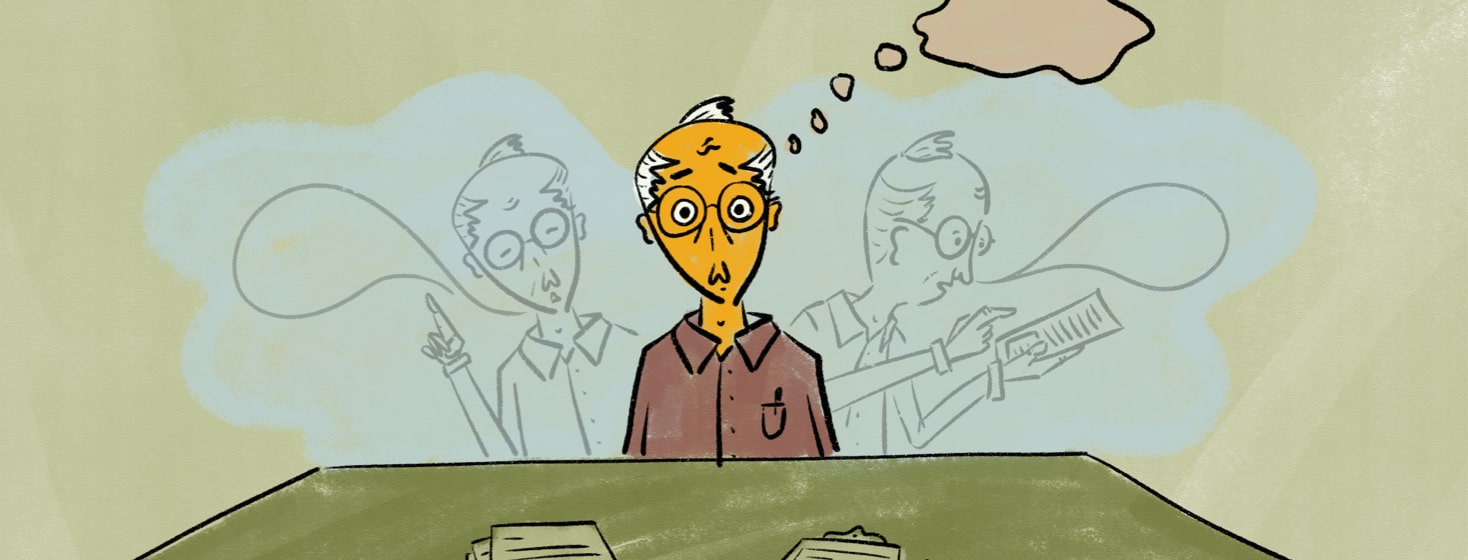Be Your Own Advocate. OK... But How? Why?
You have to be your own advocate. How many times have we heard that? Ten? One hundred? Eleventy-seventy-jillion? Probably somewhere in between that first and last one. Unfortunately, that’s all they ever say. No one says how to advocate for yourself or why. Do you need a special degree? Is it some sort of soft drink you have to consume? People talk about it so reverently you’d think it was something you’d have to freebase but the point is no one ever tells you how to actually be your own advocate, so let’s do that.
The advice never ends
Now, anyone who gets a cancer diagnosis can tell you that the only thing you get stuffed more of than food with ginger is unsolicited advice. Eat this, don’t eat this, do this, don’t do this, my cousin’s grandmother’s friend’s favorite tai-chi instructor says if you shove lemons in your nostrils it helps with nausea. Yeah, you think I made that last one up, but the scary thing is I didn’t.
The advice never ends but the thing that that you hear above all else is that you have to “be your own advocate.” Now, since I got cancer after having thirty years of rheumatoid arthritis, another chronic illness, I was a bit of an old-hand at the self-advocating thing so it wasn’t difficult to pivot, but for most people, it’s starting from scratch and the first part of that is finding your voice.
Finding your voice
When you have cancer, you must find your voice. It sounds easy but I promise it’s not as simple as visiting Ursula the Sea Witch’s local pawn shop and picking up a few slightly used lovesick mermaid’s vocal stylings, no, it’s a little bit more involved.
When you first get diagnosed, information and choices are going to come flying at your faster than tennis balls at a golden retriever and they are going to force you to make decisions quickly. It doesn’t give you much time to consider or research the choices you are making but it also does something else – it conditions you to listen to whatever your doctors say without question from the jump.
This is not necessarily a good thing because doctors are, and I know this is going to be shocking, also people! Yes! They have bad days, they get frustrated, and they have Tinder dates they want to leave for, but you keep asking pesky questions like, “Is this safe?” Doctors aren’t infallible, so, you must dig up the courage to question the things that you aren’t comfortable with. That’s finding your voice. Finding the cajones to speak up, even to a doctor, when you have something to say because – and I can’t believe I have to say this out loud – you know your body best because you are the one with cancer!
Ask for more information
Next, know that it is ok to say no or ask for more information about something you don’t want to do or aren’t sold on. You have to think of it like this: you are the client and the doctor is the salesman. Just because he’s selling you something that could save your life, doesn’t mean that’s not the case. Would you go into a store and buy a car seat for a child that you didn’t feel was safe or didn’t like? No, you’d do your due diligence before you spent all that money, and I can confidently say that your life is worth more than a car seat. Well, most of you anyway.
Now, there is something you need to know. Unfortunately, some doctors may develop a bad attitude or suddenly start not responding to calls and emails right away if you don’t hup-to and toe the line without hesitation. I call it getting doc-blocked. They shouldn’t do it, and frankly, it’s probably the teeniest bit malpracticey, but the real world isn’t a TV show (see the whole “doctors are people” thing above). Even doctors I have known for thirty years still pull the old disappearing act if I get to asky-for-thingsy. Guess what though? Again, you are the client, and they are the provider (don’t call them that though, docs HATE when you call them “providers” for some reason). It’s fine to respectfully but assertively ask for the things you need to make yourself feel safe and comfortable.
Don't let anyone make you feel less than
One other thing I want to mention is that it’s also extremely fine if you just want to do what the doc says without question. Don’t let anyone make you feel less than with the “be your own advocate” thing if you just decide to follow instructions. Cancer is a huge mental lift and sometimes you just don’t want to deal with the stress of fighting a doctor or finding a second opinion and that’s OK. That being said, this information is here if you ever need it.
Being your own advocate, it’s not as easy as it sounds, and it comes with some significant strings. Hopefully, I’ve laid them out as best I can here, as well as some of the reasons why you should find your voice and use it. Even if you don’t, though, just know that it’s your body, your cancer, and your choice, ultimately. Talk soon.
This or That
What topics about blood cancer would you like to read more about?

Join the conversation